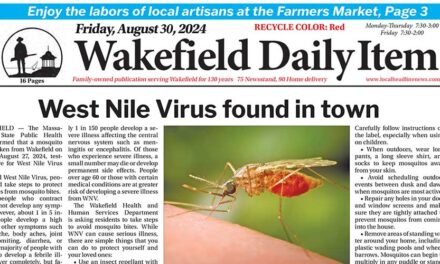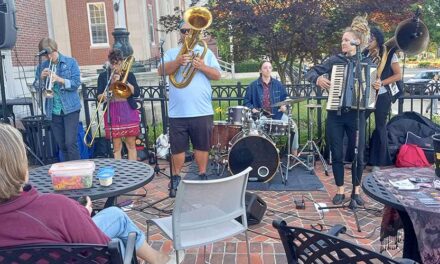Published in the February 3, 2016 edition
By MARK SARDELLA
WAKEFIELD — It’s admittedly early in the process, but Town Administrator Stephen P. Maio sees Charlie Baker’s proposed FY 2017 state budget as a positive sign for Wakefield. Baker filed his budget last week.
“Charlie Baker has stated on a number of occasions that he is a friend of municipalities,” Maio said, “and based on the two budgets that he has drafted I would say that that’s an accurate statement.”
Maio noted that the Massachusetts Municipal Association meeting two weeks ago Baker had said that with state revenues up by 4.3 percent, he was proposing in his budget to increase unrestricted local aid by 4.3 percent.
“He also increased Chapter 70 aid for Wakefield a little bit,” Maio said. “We are looking at a net increase in local aid of $300,000,” Maio said. He added that there will also be a decrease of $300,000 next year in the state and county assessments that the town has to pay, mainly in the charter school assessment.
“So we are looking at a net increase of close to $600,000,” Maio said.
He did acknowledge that the charter school tuition reimbursement that the town receives went town from $159,000 to $58,000. But he noted that it’s still a net gain to the town in terms of charter school costs. Maio attributed that gain largely to the new Galvin Middle School keeping more kids in Wakefield.
Maio’s fiscal optimism did not come without caveats.
“One of the keys is that the schools work with the town and the Finance Committee and live up to our long-term plan, Maio said, “which was a big increase (for the schools) in FY’16 while keeping fiscal years ‘17, ‘18 and ‘19 at a level where we can replenish our reserves.”
He also said that he has been hearing that the GIC’s insurance providers are looking for more money. If it happens the increases would be passed on to cities and towns in the GIC system.
“I should know more about that in March,” Maio said.
Then there’s the always unpredictable weather and the Snow and Ice budget. In FY 2016 the town had to deal with $1.2 million in snow and ice overdrafts from last winter. Maio noted that the town is “nowhere near that” this year but winter isn’t over yet.
Gov. Baker said last week that his FY’17 budget continues his administration’s multi-year effort to bring state spending in line with revenues. The administration’s plan recommends key investments in education, local aid, addressing substance misuse, workforce development, transportation and the Department of Children and Families (DCF), all without raising taxes or fees.
“This year’s budget sets the table for fiscal responsibility and a strong economic environment, without raising taxes or fees on our hardworking families,” Baker said. “Our proposal makes targeted investments in transportation, education, the Department of Children and Families and fulfills our commitment to cities and towns to bolster local aid as we aim to make Massachusetts great in every community.”
Baker’s Administration and Finance Secretary Kristen Lepore also weighed in on the governor’s FY’17 budget.
“This budget proposal continues the administration’s progress to getting the Commonwealth back on the path of fiscal sustainability,” Lepore said. “The state’s long term fiscal health depends on the Commonwealth getting to structural balance and our ability to put money into the Stabilization Fund while the economy is growing.”
Maio admitted that over the coming months a lot could change in the state budget as the House and the Senate will also have an opportunity to weigh in before the final budget is signed.
“We’re a long way from June when they’ll sign it,” Maio said. “But this is a good sign that it’s a little more positive for Wakefield at this point in time,” Maio said. “Better positive on Feb. 2 than negative.”




